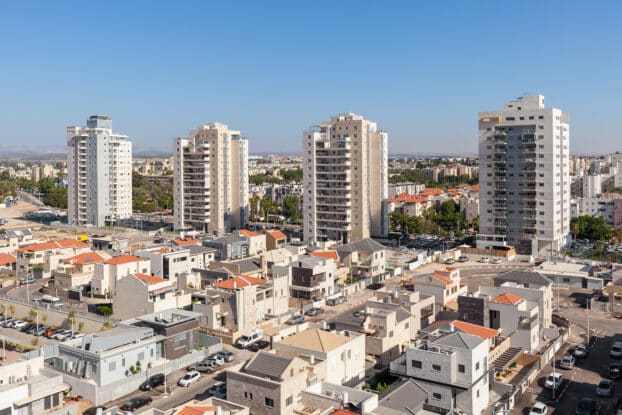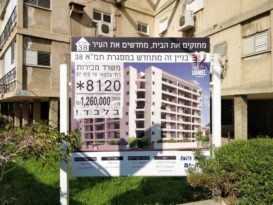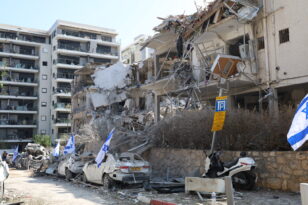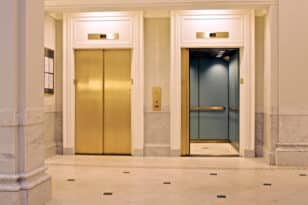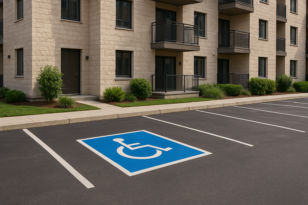A recent court ruling examines whether a Va’ad Bayit can require all condo owners to contribute to renovations of a shared property without obtaining unanimous consent. After a building in Netanya was declared unsafe, a majority of the residents approved the repairs. Two apartment owners objected, claiming the work exceeded basic maintenance. After examining the details of the case, the court ruled that the renovations qualified as “proper maintenance,” requiring all owners to contribute.
Edited by Attorney Mai Zaccai, assisted by legal expert, Gitit Lachmish
A building committee in a shared property, known as the Va’ad Bayit, is elected by the apartment owners and is responsible for managing the affairs of the shared property. The building committee operates according to an agreed-upon set of bylaws—a contract among all apartment owners in the building—that outlines specific rules for managing and maintaining the building and its shared areas. Section 58 of the Real Estate Law (1969) states that an apartment owner must participate in the expenses required for the “proper maintenance” of the shared property, proportionate to the area of their apartment relative to the entire building, unless otherwise stipulated in the bylaws. “Proper maintenance” refers to preserving the condition of the shared property as it was upon completion of construction, including improvements made with the agreement of the apartment owners.
This brief examines a court ruling regarding whether apartment owners can be required to pay their proportional share of renovation expenses for shared property when the decision to renovate was made by a majority of the owners. The case hinges on the interpretation of “proper maintenance,” which raises disputes about distinguishing between routine maintenance and significant aesthetic or structural improvements. This distinction influences the required majority for decision-making and whether all residents can be obligated to pay.
Case Circumstances:
The building committee of a condominium in Netanya sued two apartment owners in the building to compel them to pay their share of expenses for renovation and maintenance work on the shared property. The renovation was deemed necessary due to the building’s deteriorating condition, which included cracks, peeling plaster, and crumbling concrete. The Netanya municipality had even issued a dangerous building order. The decision to proceed with the renovations was made by majority vote at a general meeting of all of the apartment owners in the shared property. According to the building committee, the renovations constitute proper maintenance under the law and bylaws, meaning the majority decision is binding on all owners, including the defendants.
However, the defendants argued that consent was only given for essential repairs. Yet the contract signed by the building committee with the contractor mentioned “improvement” of the property, which they claimed exceeded the agreed scope. According to the defendants, any such improvements require the consent of all owners, which was not obtained.
Legal Question:
The legal question arising from the case is whether the renovations exceeded the scope of “proper maintenance,” and therefore, whether the minority owners can be legally compelled to pay their share of the costs.

Court Ruling:
According to the law, a decision regarding proper maintenance may be passed by majority vote and is binding even on dissenting owners. If the work does not qualify as “proper maintenance,” however, it cannot be enforced upon non-consenting owners.
The court reviewed the definition of “proper maintenance” in previous rulings and adopted a broad and liberal interpretation. This approach slightly limits the property rights of minority owners in favor of the collective interest of all owners—to prevent deterioration and potential damage to the shared property.
After examining the renovation contract and the bill of quantities detailing the planned work and required materials, the court was not convinced that the work exceeded the bounds of proper maintenance, according to current standards. For example, the court found that concrete rehabilitation and repair were directly related to eliminating safety hazards. Likewise, plastering, waterproofing, and repainting were deemed inherently related to properly maintaining the shared property.
The court rejected the defendants’ arguments and ruled that the renovations fall under “proper maintenance,” thereby obligating them to participate in the costs, even without their consent.
(Court Case: Building Committee of 103 Weizmann Blvd., Netanya v. Yigal Masicha)
Gindi Caspi & Co. is one of Israel’s most prominent law firms in real estate, planning and zoning, and urban renewal. With decades of extensive experience handling complex and large-scale real estate transactions, the firm is consistently ranked among the top-tier firms in these fields by all major rating companies. Notably, the international LEGAL 500 recognized Gindi Caspi & Co. as a Leader in real estate, planning, and zoning and highlighted Adv. Ziv Caspi as a Leading Individual in Israeli law. The firm has also received numerous accolades, including ranking among the top real estate law firms (Dun’stars) in planning, zoning, and urban renewal. It was honored as a “pillar and cornerstone in fulfilling the nation’s vision for building and settling the land.” For five consecutive years, the firm has been ranked first in Israel in the field of urban renewal.
For inquiries, contact law@gindi-caspi.co.il.
